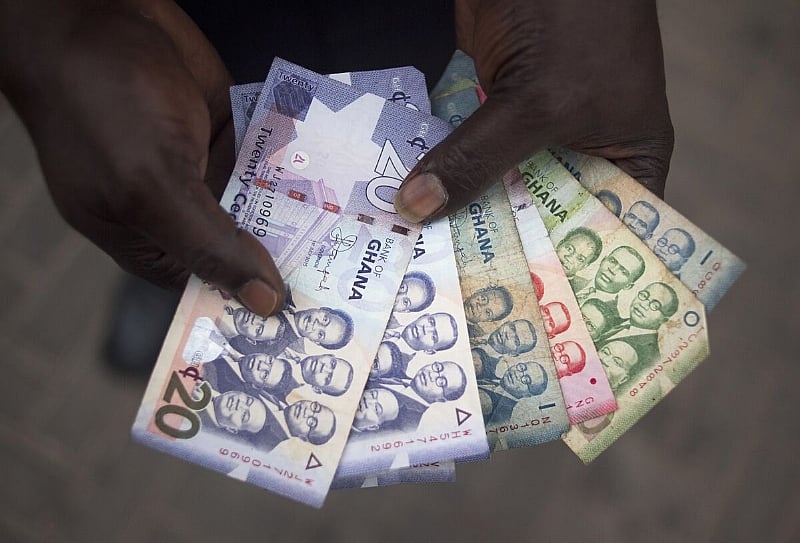The Ghanaian cedi exhibited stability against the United States dollar on Wednesday, January 8, 2025, maintaining its value compared to the previous day’s averages. Data compiled from Cedirates.com, a reputable source for currency and fuel information in Ghana, reveals a nuanced picture of the cedi’s performance across different market segments. At forex bureaus, the cedi traded at a buying rate of GHS15.30 and a selling rate of GHS15.80, reflecting the slightly higher premiums typically charged by these establishments. Meanwhile, at traditional banking institutions, specifically at interbank rates, the cedi demonstrated even greater resilience, with a buying rate of GHS14.69 and a selling price of GHS14.71 against the US dollar. This indicates a more favorable exchange rate for those conducting transactions within the formal banking system. The overall picture suggests a relatively stable cedi performance against the dollar during this period.
Expanding the analysis beyond the US dollar, the Ghanaian cedi’s performance against other major international currencies reveals a similar trend of stability. The British Pound Sterling, a historically strong currency, exchanged at average buying and selling rates of GHS18.09 and GHS18.90, respectively. These rates, while higher than the dollar exchange rate, suggest a consistent relationship between the cedi and the pound. Similarly, the Euro, another prominent global currency, traded at buying and selling rates of GHS14.98 and GHS15.69, respectively. These figures position the Euro closer to the dollar in terms of its exchange rate with the cedi, further emphasizing the relative stability of the Ghanaian currency within the broader international forex market. The Bank of Ghana’s interbank market offered slightly better rates for both the Pound (GHS18.39 selling) and the Euro (GHS15.27 selling) compared to the forex bureau rates.
The emergence of digital remittance platforms has introduced a dynamic element to the currency exchange landscape. LemFi and Afriex, two prominent money transfer services catering to remittances from the US and the UK to Ghana, offer competitive rates that differ slightly from traditional banking channels. LemFi provided a rate of GHS14.60 per dollar for transfers from the US, while Afriex offered a slightly more favorable rate of GHS13.77 per dollar. This competition benefits consumers, providing them with choices and potentially lower costs when sending money to Ghana. For transfers from the UK, the two platforms offered buying rates of GHS18.24 (LemFi) and GHS17.21 (Afriex) for the British Pound, respectively.
Further diversifying the foreign exchange ecosystem are these platforms’ exchange rates for the Euro. Afriex offered a selling rate of GHS14.35 per Euro, while LemFi provided a rate of GHS15.16 per Euro. These variations reflect the different operating models and cost structures of the respective platforms, as well as their strategies for attracting customers in the competitive remittance market. The availability of these digital platforms contributes to increased accessibility and transparency in cross-border money transfers, offering alternatives to traditional banking channels and potentially stimulating competition within the financial services sector.
For consumers engaging in international online transactions, the exchange rates offered by major payment processors like Visa and Mastercard play a crucial role. Both companies offered a consistent rate of GHS15.81 per US dollar for transactions such as renewing subscriptions to popular services like Netflix, Spotify, and Apple Music. This standardized rate simplifies the process for consumers, providing clarity and predictability when making online purchases in US dollars. It also highlights the integration of global payment systems within the Ghanaian economy, facilitating seamless participation in the digital marketplace for consumers within the country.
In summary, the Ghanaian cedi demonstrated stability against major international currencies on Wednesday, January 8, 2025. The data across forex bureaus, interbank rates, and digital remittance platforms provides a comprehensive overview of the cedi’s performance. While minor variations existed between these different channels, the overall picture suggests a resilient cedi holding its ground in the global currency market. The presence of digital remittance platforms introduces competition and potentially favorable rates for consumers, while the standardized rates offered by major payment processors simplify international online transactions. This complex interplay of factors contributes to a dynamic and increasingly accessible foreign exchange landscape within Ghana.














